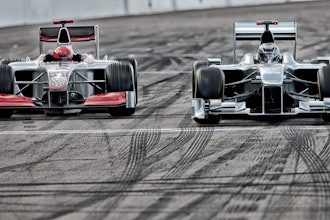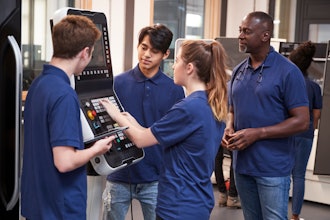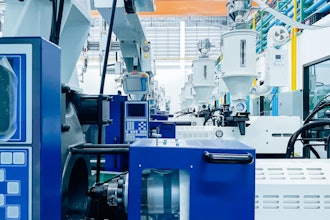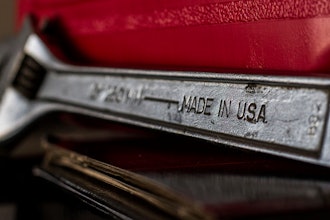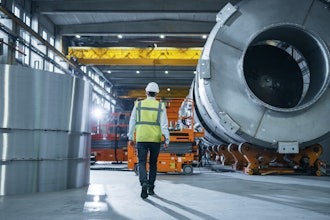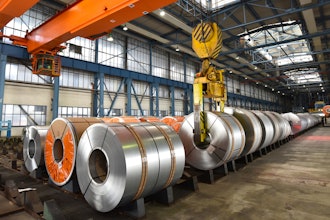About a month ago, we covered the most recent problems with Boeing’s 787 Dreamliner, including the grounding of the currently small fleet (from this well-referenced Wikipedia article)…
On January 16, 2013, the FAA issued an emergency airworthiness directive that grounds all 787s in the U.S. The EASA, Japanese Transport Ministry, India's Directorate General of Civil Aviation (DGCA), and Chile's Dirección General de Aeronautica Civil (DGAC) followed suit and grounded the Dreamliners in their respective jurisdictions.
According to a Fox News (Associated Press) brief published on February 5th, Japan’s Transport Safety Board found evidence of thermal runaway in the aircraft’s lithium-ion (lithium cobalt oxide) batteries…
…a chemical reaction in which rising temperature causes progressively hotter temperatures. U.S. investigators found similar evidence in the battery that caught fire last month on a Japan Airlines 787 parked in Boston.
Here’s more on thermal runaway from another seemingly well-referenced Wikipedia piece, which includes the following snippet…
The Pipeline and Hazardous Materials Safety Administration (PHMSA) of the U.S. Department of Transportation has established regulations regarding the carrying of certain types of batteries on airplanes because of their instability in certain situations. This action was partially inspired by a cargo bay fire on a UPS airplane. One of the possible solutions is in using safer and less reactive anode (lithium titanates) and cathode (lithium iron phoshate) materials together with non-flammable electrolytes based on ionic liquids.
Umm, wait a second. Doesn’t that say that certain battery types are dangerous to carry on planes, but they can be used to power on-board aircraft systems? Yeah. It seems that’s what’s happening. It gets better…wait for it…
According to this article at The Huffington Post, new federal rules—published just before Dreamliners were grounded—ironically reversed that situation…
Dreamliners worldwide were grounded nearly three weeks ago after lithium ion batteries that are part of the planes led to a fire in one plane and smoke in a second. But new rules exempt aircraft batteries from the ban on large lithium ion batteries as cargo on flights by passenger planes.
In effect, that means the Dreamliner's batteries are now allowed to fly only if they're not attached to a Dreamliner. [Emphasis added.]
Most rechargeable battery chemistries can overheat, sometimes catastrophically. We’ve all seen the occasional piece about exploding smartphones. Even as far back as 2006…
…batteries from Apple, HP, Toshiba, Lenovo, Dell and other notebook manufacturers were recalled because of fire and explosions.
Why did the feds change the battery rules?
The International Civil Aviation Organization, a U.N. agency that sets global aviation standards, adopted the aircraft battery cargo exemption in October 2011, and it went into effect Jan. 1. The organization's standards normally aren't binding. But a provision inserted into U.S. law at the behest of the battery industry and their shippers says the rules can't be stricter than the U.N. agency's standards.
Are some people just making too much of the battery issue? First, a Huff Post comment by a man I do trust, now-retired pilot and hero ‘Sully’ Sullenberger who emergency-landed U.S. Airways Flight 1549 on the Hudson River back in 2009…
"The potential for self-ignition, for uncontained fires, is huge," he said. The new regulations "need to be looked at very hard in the cold light of day, particularly with what has happened with the 787 batteries."
Granted, Capt. Sullenberger isn’t an electrical engineer. So, how about someone who arguably knows batteries? I dunno, someone like Elon Musk, CEO of Tesla Motors as well as CEO and Chief Designer of SpaceX? Here’s a little background on Musk from CrunchBase…
He earned an undergraduate degree in economics and stayed on another year to finish a second bachelor’s degree in physics.
Okay, the guy might know what he’s talking about when it comes to batteries.
A couple of weeks ago, Musk hurled himself into the brewing Boeing battery situation, saying in this Flightglobal article…
"Unfortunately, the pack architecture supplied to Boeing is inherently unsafe," writes Musk in an email to Flightglobal.
"Large cells without enough space between them to isolate against the cell-to-cell thermal domino effect means it is simply a matter of time before there are more incidents of this nature," he adds.

Unlike Boeing’s design decision to use a battery ‘with a grouping of eight large cells,’ Tesla automotive batteries ‘contain thousands of smaller cells that are independently separated to prevent fire in a single cell from harming the surrounding ones.’
"Moreover, when thermal runaway occurs with a big cell, a proportionately larger amount of energy is released and it is very difficult to prevent that energy from then heating up the neighboring cells and causing a domino effect that results in the entire pack catching fire," says Musk.
Since I’m not an Elon Musk fan, I wondered what other battery experts might have to say. Here’s an expert, MIT professor of electrical engineering Donald Sadoway, also quoted in the Flightglobal piece…
"I would have used the same words [as Musk]," says Sadoway. "I'm glad someone with such a big reputation put it on the line."
"He's engineered [Tesla's battery] to prevent the domino effect, while Boeing evidently doesn't have that engineering," adds Sadoway.
Now, let’s head to Boeing 787 chief project engineer…









